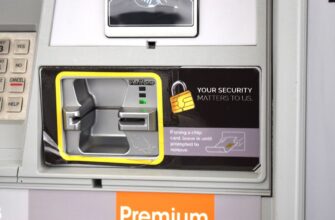- Why Your Dubai Bitcoin Wallet Choice Matters
- Key Wallet Features Dubai Users Can’t Ignore
- Top 5 Bitcoin Wallets for Dubai Residents (2024)
- 1. Ledger Nano X – Best Hardware Wallet
- 2. Trezor Model T – Most Secure Recovery
- 3. Exodus – Best Desktop/Mobile Combo
- 4. Trust Wallet – Top Mobile Experience
- 5. Coinbase Wallet – Best for Beginners
- Setting Up Your Wallet: Dubai Edition
- Dubai’s Crypto Regulations Decoded
- Frequently Asked Questions
- Q: Is Bitcoin legal in Dubai?
- Q: Can I buy Bitcoin with AED?
- Q: Are hardware wallets necessary in Dubai?
- Q: What if I lose my wallet?
- Q: Do Dubai banks accept crypto wallets?
- Q: Which wallet has the lowest fees?
Why Your Dubai Bitcoin Wallet Choice Matters
As Dubai accelerates toward becoming a global crypto hub with initiatives like the Virtual Assets Regulatory Authority (VARA), selecting the right Bitcoin wallet is critical. Whether you’re a resident investor, expat trader, or tech-savvy tourist, your wallet impacts security, transaction costs, and regulatory compliance. This guide cuts through the noise to reveal the top Bitcoin wallets tailored for Dubai’s unique market—where innovation meets strict financial regulations.
Key Wallet Features Dubai Users Can’t Ignore
Prioritize these essentials when evaluating Bitcoin wallets in Dubai:
- VARA Compliance: Wallets should align with UAE’s anti-money laundering (AML) standards.
- AED Integration: Support for UAE dirham deposits/withdrawals via local exchanges like BitOasis or Rain.
- Heat Resistance: Hardware wallets must withstand Dubai’s extreme temperatures if stored physically.
- Multi-Currency Support: Access to popular coins like ETH and stablecoins for diversified portfolios.
- Arabic Interface: Language options for seamless local usability.
Top 5 Bitcoin Wallets for Dubai Residents (2024)
1. Ledger Nano X – Best Hardware Wallet
Why Dubai Users Love It: Military-grade security with Bluetooth connectivity for mobile trading. Supports 5,500+ coins.
- Pros: Offline cold storage, VARA-compliant protocols, tamper-proof chip
- Cons: Higher upfront cost (~AED 800), requires physical device
2. Trezor Model T – Most Secure Recovery
Ideal For: Long-term holders prioritizing asset protection. Features touchscreen and Shamir Backup.
- Pros: Open-source software, intuitive Arabic UI, integrates with UAE exchanges
- Cons: Pricier than software wallets (~AED 1,100)
3. Exodus – Best Desktop/Mobile Combo
Standout Feature: Built-in exchange with real-time AED conversion rates. Staking support.
- Pros: Free, stunning visuals, 24/7 customer support
- Cons: Less advanced security than hardware options
4. Trust Wallet – Top Mobile Experience
Binance-Owned: Seamlessly connects to Binance DEX for AED pairs. NFT-compatible.
- Pros: Zero fees for receiving crypto, intuitive for beginners
- Cons: Limited desktop functionality
5. Coinbase Wallet – Best for Beginners
Dubai Advantage: Direct AED purchases via credit card. Educational resources.
- Pros: Insured custodial options, user-friendly design
- Cons: Higher transaction fees than competitors
Setting Up Your Wallet: Dubai Edition
- Verify identity per UAE KYC requirements using Emirates ID
- Connect to local exchanges (e.g., BitOasis) for AED funding
- Enable two-factor authentication (2FA) with UAE phone number
- Store recovery phrases offline—never digitally
- Test small transactions before major transfers
Dubai’s Crypto Regulations Decoded
Dubai operates under VARA’s strict but progressive framework. Key rules:
- All crypto activities require VARA licensing
- Tax-free transactions (no capital gains tax)
- Mandatory AML checks for transfers over AED 55,000
- Corporate crypto use permitted in free zones like DIFC
Non-compliance risks fines up to AED 50 million—always use regulated wallets.
Frequently Asked Questions
Q: Is Bitcoin legal in Dubai?
A: Absolutely. Dubai fully legalized crypto in 2022 under VARA oversight, encouraging responsible adoption.
Q: Can I buy Bitcoin with AED?
A: Yes! Local exchanges like BitOasis, Bybit, and Rain allow direct AED-to-BTC purchases via bank transfer.
Q: Are hardware wallets necessary in Dubai?
A: For holdings exceeding AED 10,000, hardware wallets are strongly recommended due to superior security against cyber threats.
Q: What if I lose my wallet?
A: Your recovery phrase (12-24 words) restores access. Never share it or store it digitally—write it on steel backup plates.
Q: Do Dubai banks accept crypto wallets?
A: Select banks like RakBank support transfers to VARA-licensed exchanges. Always notify your bank before large crypto transactions.
Q: Which wallet has the lowest fees?
A: Trust Wallet and Exodus typically offer the lowest network fees, but always check real-time estimates during transactions.








